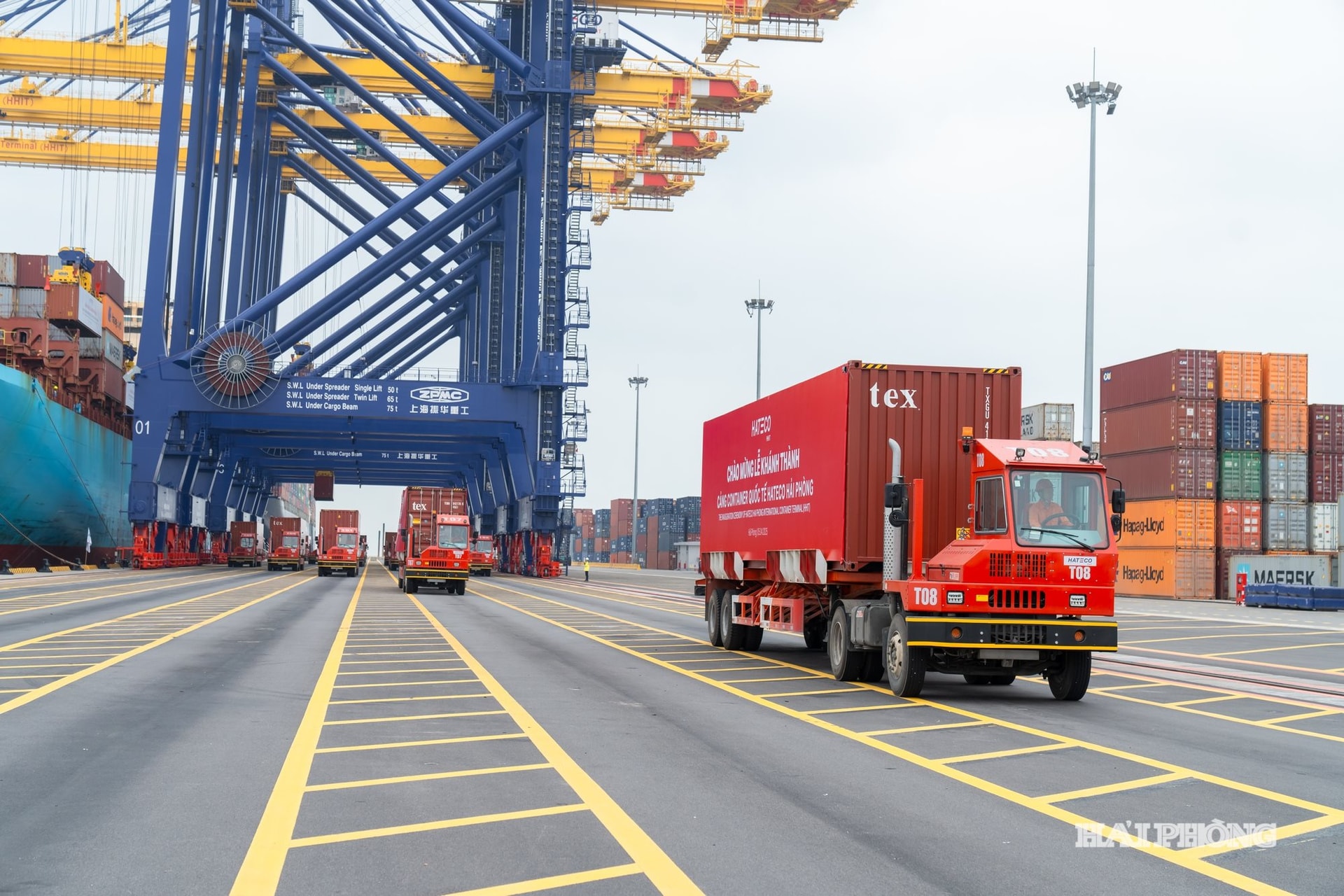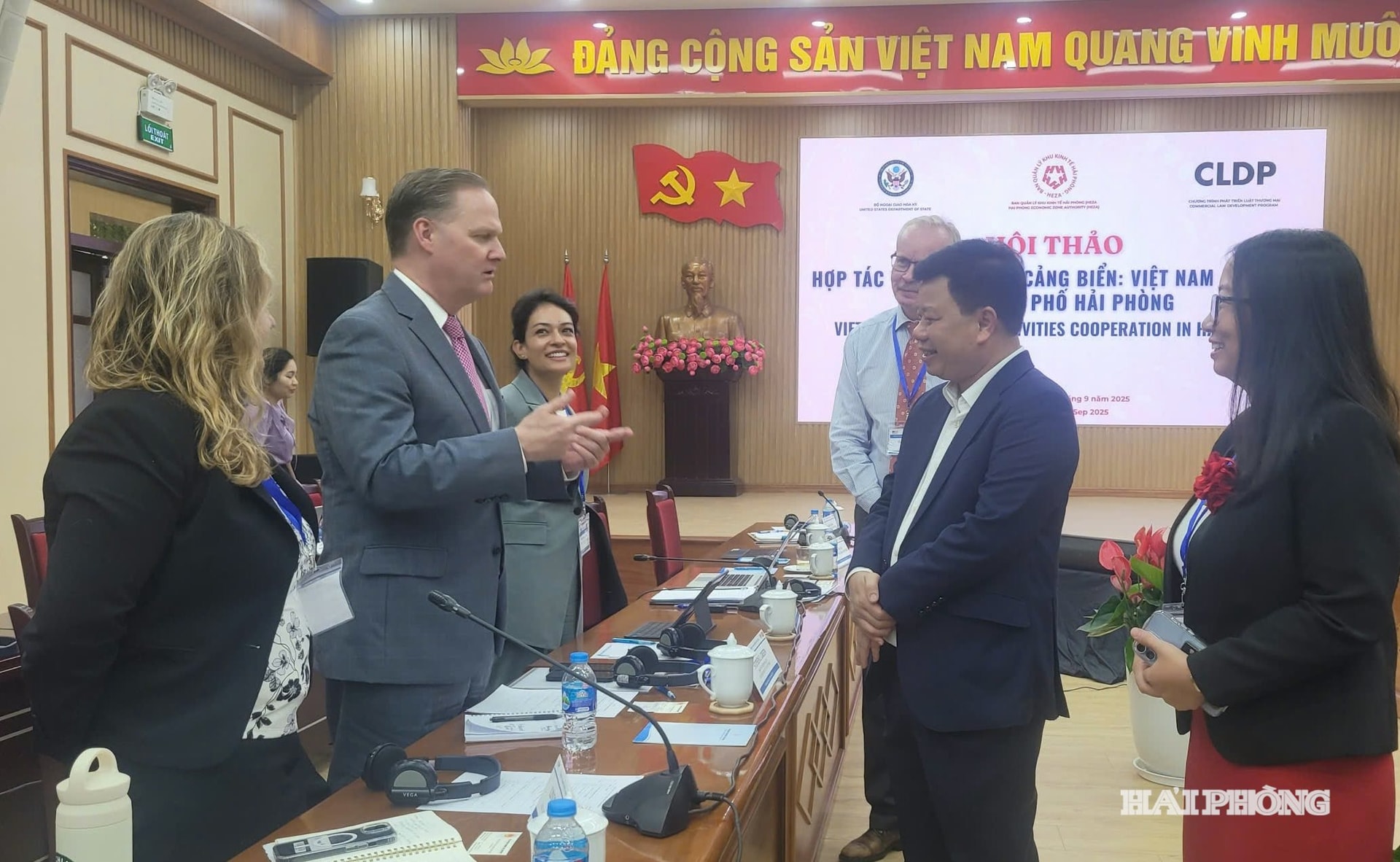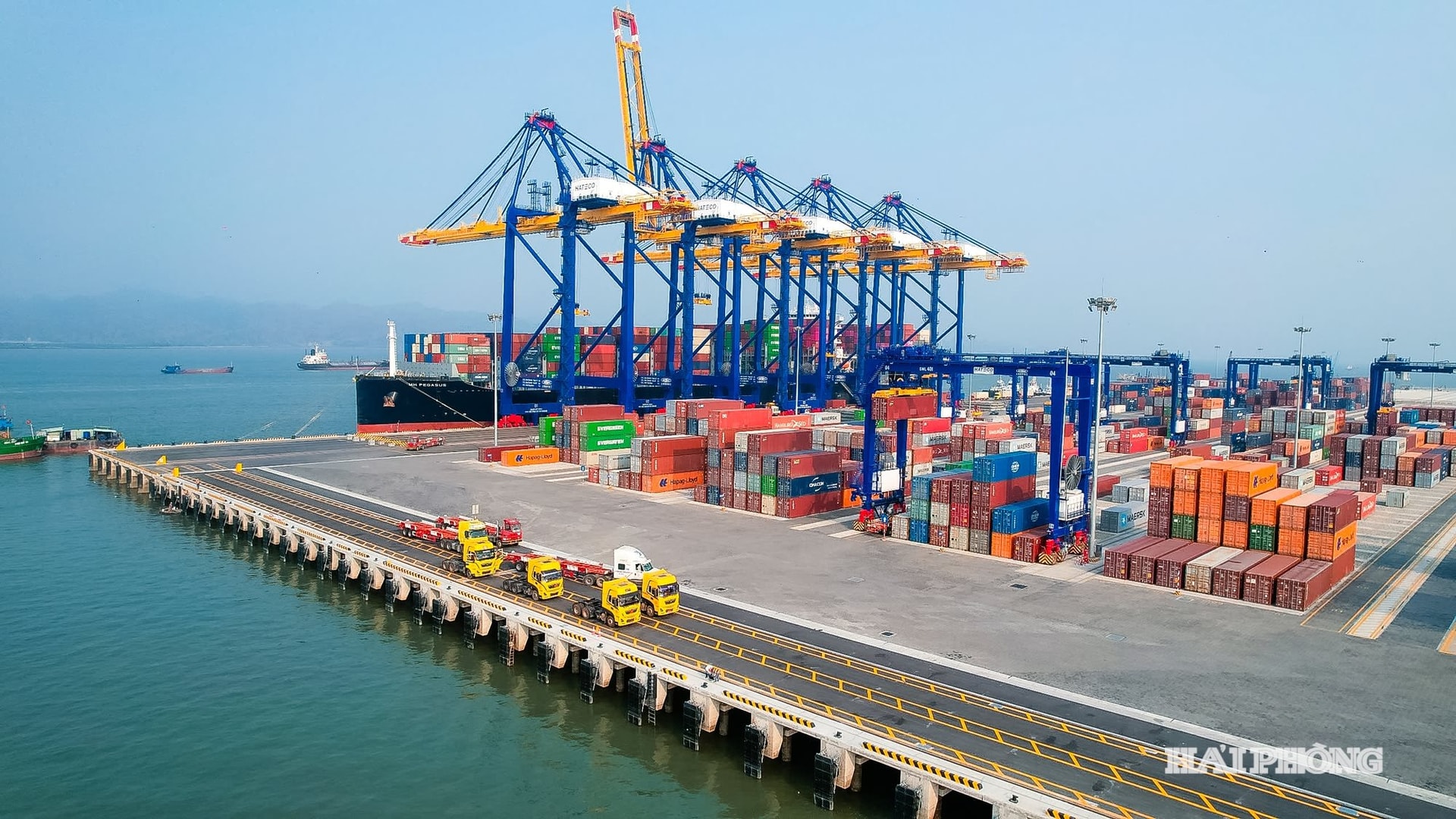The ability to accommodate large container ships traveling directly between seaports in Hai Phong city of Vietnam and the US not only affirms the capacity of Hai Phong’s seaport infrastructure but also opens up opportunities for sustainable trade cooperation across the Pacific.

Trans-Pacific shipping
In February 2025, the vessel M/V MCS Aurora, 366 m long with a deadweight tonnage of 155,000 DWT, successfully docked at Hateco Haiphong International Container Terminal (HHIT), part of the Hai Phong International Gateway Port (Lach Huyen terminal). This is the mother ship of the Chinook service route, directly connecting Hai Phong with major ports in the US and Canada.
From here, export goods from northern Vietnam can be shipped directly to the final port without needing transshipment via Singapore or Hong Kong (China). This saves businesses significant costs, shortens the journey, and enhances competitiveness.
Three months later, in May, Tan Cang Hai Phong International Container Terminal (TC-HICT) made another mark with the arrival of the ZIM Falcon, the first vessel of ZIM Lines operating the Trans-Pacific ZIM E-Commerce Express (ZEX) service directly to the US West Coast.
This route shortens shipping time from Hai Phong to the US’s Los Angeles to about 17 days, a major advantage for Vietnam’s key export industries such as electronics, garments and textiles, footwear, and agricultural products, sectors that require precise delivery schedules.

Grasping the wide-open opportunities in seaport operations cooperation between Hai Phong and US port enterprises, the Hai Phong Economic Zone Authority, in collaboration with the Commercial Law Development Program of the US Department of Commerce, organized the seminar “Vietnam-US seaport activities cooperation in Hai Phong” on September 11 - 12.
“The arrival of vessels directly from the US shows that Hai Phong’s port capacity has reached international standards. This is an opportunity for the city to become a strategic transshipment hub, enabling Vietnamese businesses to make better use of the US market,” said Bui Ngoc Nam, Deputy Director of the Hai Phong Port Authority, at the event.
Erik Wehl, public-private partnership expert and Chair of the Ports Subcommittee of the World Association of PPP Units & Professionals, said: “Direct connection with Hai Phong brings bilateral benefits. US businesses gain stable cargo sources, while Vietnamese companies save time and logistics costs, and strengthen transparency in supply chains.”
These advances in seaport cooperation between Vietnam and US port enterprises not only open up new trade opportunities but also affirm Hai Phong’s determination to become an international logistics hub.
With stable trans-Pacific shipping routes, Hai Phong continues to reinforce its position as the northern region’s gateway to the sea, contributing significantly to Vietnam’s goal of becoming a reliable link in the global supply chain.
Global supply chain connection

Along with new shipping routes, Hai Phong port continues to affirm its growing role in the global port system. According to Lloyd’s List’s September 2025 ranking, Hai Phong port ranks 29th among the world’s top 100 busiest container ports, handling about 7.1 million TEUs per year, the leading position in northern Vietnam.
Hai Phong port now holds a prominent position on the international maritime map and within the global supply chain. The Lach Huyen deep-water port cluster is currently operating six berths, capable of receiving vessels of over 130,000 DWT.
Under its master plan, by 2030, the cluster will expand to 13 - 16 berths with a capacity of 61.4 - 90 million tons/ year. With more than 6 km of quayside and advanced management technology, Hai Phong port has the competitiveness to rival top transshipment hubs in Southeast Asia.
With these locational advantages and development momentum, Hai Phong - US seaport cooperation is set to become a key driver of bilateral trade relations. Direct shipping routes not only shorten geographic distance but also build trust in a safe, efficient, and sustainable supply chain.
HAI MINH